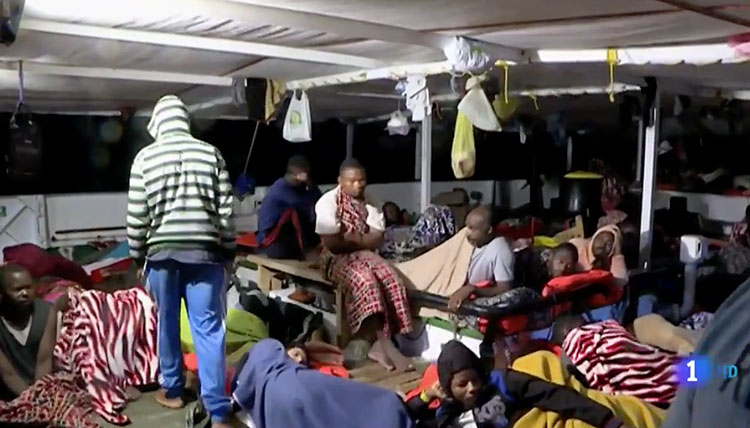The Diplomat
The Home Affairs Ministers of the European Union agreed yesterday to strengthen cooperation with Afghanistan’s neighbours, such as Pakistan and Iran, in order to avoid “large-scale illegal and uncontrolled migratory movements”.
The Interior ministers, who met at an extraordinary Council meeting in Brussels to seek a common European position in the face of the looming migration crisis following the Taliban takeover of Afghanistan, agreed that the reception of refugees in the bloc will be voluntary.
“The EU will commit and strengthen its support to third countries, in particular neighbouring and transit countries hosting large numbers of migrants and refugees, to strengthen their capacity to provide protection, dignified and safe conditions and sustainable livelihoods for refugees and host communities,” says a statement issued at the end of the meeting.
In the text, they say that “incentives for illegal migration should be avoided” and add that “as part of comprehensive efforts, support could be provided in the form of resettlement (of refugees) on a voluntary basis” and giving priority to “vulnerable” groups such as women and minors.
At the press conference following the meeting, the European Commissioner for Home Affairs, Ylva Johansson, announced that she will convene a new forum with other international partners in the coming weeks to discuss the reception of Afghan refugees, but she preferred not to give a specific number of people to whom member states should grant humanitarian protection.
According to Johansson, despite the differences between member states, they all want to avoid a crisis like the one in 2015, when more than a million people arrived irregularly in Europe seeking asylum, fleeing the war in Syria. The commissioner believes that Europe is better prepared than it was then and has more mechanisms to fall back on.
Another aspect that the interior ministers address in their joint declaration is the implications of the situation in Afghanistan for the security of the bloc. In this chapter, the EU-27 guarantee that they “will do everything possible to ensure that it does not lead to new threats to European citizens.
“All efforts must be made to ensure that the Taliban regime severs all its links with international terrorism and that Afghanistan does not again become a sanctuary for terrorists and organised crime groups,” the document reads.
The Spanish Minister of the Interior, Manuel Grande-Marlaska, had indicated before entering the meeting that Spain “will accept its individual responsibility within the EU” to take in Afghan refugees fleeing their country.
The minister insisted that the EU must continue to take the necessary measures to protect Afghans and neighbouring countries that may be most affected by migratory movements.
In addition, Grande-Marlaska called yesterday for the creation of the European Pact on Asylum and Migration, which has been stalled in the European Council for a year, to be reactivated.
The Asylum and Migration Pact initiative was launched a year ago by the European Commission, but the EU-27 have not managed to make progress in adopting an instrument that is once again proving to be very necessary in the face of the Afghan crisis. The different perceptions among the member states on how to tackle migration issues have put the brakes on a project that Marlaska yesterday described as “essential” for the European bloc.
According to the minister, the EU must “be aware” of the importance of “maintaining coordination”, speaking with “a single voice” and having a “decisive and firm cohesion” in “such important challenges” as assisting people “who are susceptible to international protection” and developing a policy against irregular migration.
He therefore called for efforts to seek a pact in order to “guarantee such basic principles as shared responsibility, solidarity, humanity and the essential element of the external dimension”, as well as “cooperation and collaboration with countries of origin and transit”.






